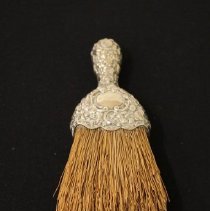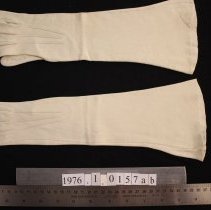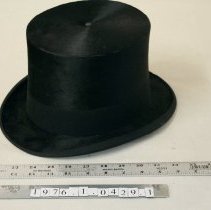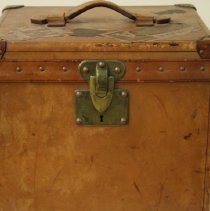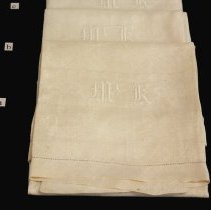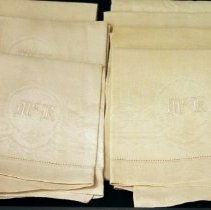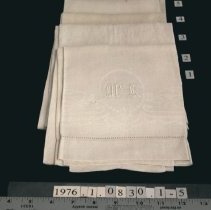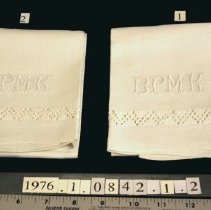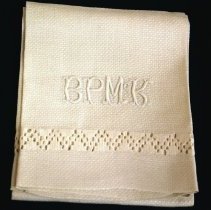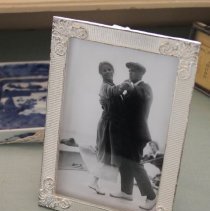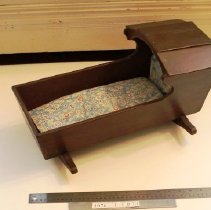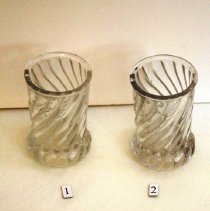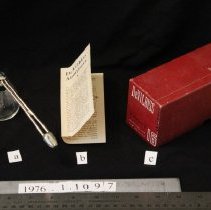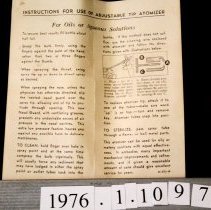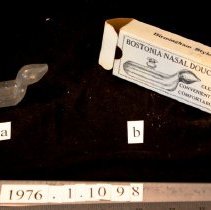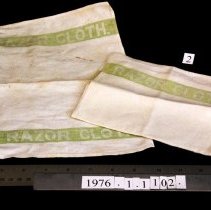Person Record
Images

Metadata
Name |
McKee, William Leander |
Born |
1863 |
Spouse |
Bessie Pardee Van Wickle McKee |
Children |
Step-father to: Marjorie Randolph Van Wickle Lyon Augustine Van Wickle Shaw Toland |
Deceased Date |
1946 |
Notes |
William McKee, known as 'Will', was born in Hagerstown, Maryland, in 1863. His father died when he was an infant, and his mother married her minister, Reverend William Stitt. Will attended Phillips Exeter Academy in New Hampshire, but did not go on to college. Instead, like many ambitious young men of good background but little money, he sought his fortune in the expanding economy of the post-civil war South. At nineteen he was a clerk in Rome, Georgia, and in a very short time he became the co-owner of a successful gentlemen's department store, Emmons & McKee. In 1898 Will formed a partnership with a young banker from New York, Arthur Tedcastle, and together they moved north, establishing a flourishing wholesale shoe business on Lincoln Street in Boston. William McKee married Bessie Pardee Van Wickle in May 1901, three years after the tragic death of Bessie's husband Augustus Van Wickle. The two men had been good friends. They met in 1887 when Will's step-father, Reverend Stitt, accepted the call to be pastor of the Hazleton Presbyterian Church attended by Bessie's family. Augustus and Will shared a love of sailing, hunting, fishing, golf, and camping, and took several trips together, including a visit to the Columbian World's Fair in 1893 and the first cruise of the yacht 'Marjorie' in 1896. The name of William Leander McKee is the first one in the first Blithewold Guest Book. Will McKee was warm and outgoing, and loved family life and entertaining. Although he never had children of his own, he adored Bessie's daughters, Marjorie and Augustine. And they, in turn, loved him deeply and always addressed him as "Father dear." Will and Bessie entertained a constant stream of family and friends at their Boston home on Commonwealth Avenue and at Blithewold. He was never happier than when out sailing on his yacht Chanticleer on Narragansett Bay. He was elected Commodore of the Bristol Yacht Club, Deacon and Treasurer of the Old South Church in Boston, Trustee of the Berry School (now Berry College) in Rome, Georgia, and Head of the Phillips Exeter Alumni Association. In the Great Depression which began in 1929, William McKee's business foundered. The McKees sold their house in Boston in 1932, and made Blithewold their permanent home. Augustine and her two daughters lived with them for a year while her divorce from Quincy Shaw was finalized, and seven-year old Marjorie Shaw Jeffries remembers it as a close family time. She recalls following her grandfather around, 'helping' him to split kindling wood behind the Blithewold barn, and reading the daily newspaper with him after breakfast in a big upholstered rocking chair by the living room fireplace. He taught her about the Wampanoag Indians, and the colorful history of Bristol. After Bessie McKee's death in 1936, Will McKee continued living at Blithewold until ill health and loneliness forced him to move into his club, the Algonquin Club, in Boston, and later to the Faulkner Hospital. His last years were not especially happy ones, confined to a hospital bed, and his last six months were spent, with nursing care, at the Kenmore Hotel where he was visited every day by Marjorie Lyon. However, he was able to return to Blithewold at the very end of his life in 1946, and he died there at the age of eighty-three, in the place he had loved best, and where he had been so happy. He left a letter of farewell, quoting his favorite poem, Crossing the Bar by Alfred Lord Tennyson, along with a list of friends and relatives to whom he wished Marjorie to send copies. He is buried alongside Bessie at Juniper Hill Cemetery in Bristol. The sizeable number of condolence letters sent to Marjorie bears testament to a much loved man, known to all - young and old - as 'The Commodore'. Of the many tributes, the most eloquent and wistful was " I hate to think that generation has nearly all gone. They were all part of such a gracious, peaceful, unhurried life … and in spite of personal difficulties they seemed as if they knew how to cope with the difficulties and put them in their place and make living calm and good in spite of everything." --M. Whitehead, Blithewold Curator, 2011 |

